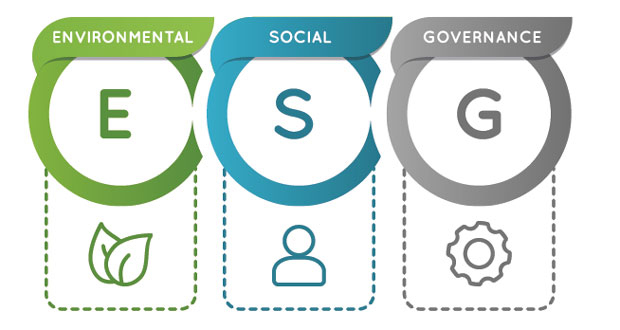 CEO of Cleanology, Dominic Ponniah, explains how cleaning suppliers are using their ESG goals to help meet targets and show stakeholders they are committed to making a positive impact
CEO of Cleanology, Dominic Ponniah, explains how cleaning suppliers are using their ESG goals to help meet targets and show stakeholders they are committed to making a positive impact
When we think about business, we usually consider the balance sheet. But while every company takes time to consider its financial health, the health of a business goes far beyond profit and loss. In recent years, we have seen a greater focus on sustainability, but this definition only goes so far.
Increasingly, ESG (Environment, Sustainability, Governance) reporting is becoming more prevalent and, with it, modern business heads towards greater accountability, that recognises the wider impact of our activities on the world around us.
We need to take our impact seriously – not just prioritising the physical environment in which we operate, but considering the people who work for a company and the communities we serve. Cleanology is accredited to ISO 14001, and is about to receive B-Corp status. While sustainability is important, focusing on ESG goals brings with them a wider power for good.
ENVIRONMENT
As well as the impact of running their own office operations, cleaning firms make a significant contribution to the sustainability goals of their customers. They need fuel to transport staff to work and, once there, operatives also use cleaning solutions, impact the success of recycling schemes and communicate positive messages around the environment.
Many clients have ESG strategies and targets in place, and a good cleaning contractor will help FMs to achieve these.
PLASTIC WASTE
Cleaning solution is the essential tool of the trade for any cleaner. Typically, this comes in plastic bottles, and is applied liberally throughout. However, this attitude needs to change. We were the first in Europe to introduce portion-controlled, biological cleaning sachets. Since switching, we are saving 16,092 litres of water, and cutting plastic bottle use from 21,600 to just 600 PET bottles each year.
Recycling is a valuable practice, but without markets for recyclable material, it is futile. In 2020, we went on to pioneer the introduction of uniforms made from recycled bottles. This saves 7,000 bottles from landfill each year, whilst also saving on resources and energy to manufacture new clothing.
Together, our sachet cleaning solutions and recycled uniforms will save 28,000 bottles from landfill in just one year.
FUELLING ENERGY REDUCTION
Travel is essential in our industry. This year we launched a 100 per cent electric van fleet to run alongside our all-hybrid car fleet. These vehicles will save 5,000 litres of diesel per year – equivalent to 13.5 tonnes of CO2.
As well as reducing the carbon impact, going green is good for budgets. We save over £3,000 a year per vehicle; there’s no road tax to pay, and also no London congestion charge, which saves another £5,500 per vehicle. That’s a massive £8,500 a year cost reduction per van.
ENVIRONMENTAL POLICY AND ISO
Our 9001 and 14001 certifications call for robust monitoring, and our environmental policy also extends through to our supply chain.
STAFF ENGAGEMENT
We regularly survey employees to assess their level of environmental awareness. Staff receive in-depth training during their induction, and annual refresher courses. We make expectations clear:
- Re-use all paper, before recycling;
- Donate printer cartridges to charity for recycling;
- Use public transport, walk, cycle or car-share whenever possible;
- Choose recycled products;
- Control noise emissions from operations.
PAPER USAGE
We had already switched to digital e-payslips for staff, and have since rolled out the system to invoices, which led to a dramatic fall of 20 per cent – saving over 100,000 sheets of paper a year.
FAIR PAY
Fair pay is critical to achieving a truly sustainable world, so the Real Living Wage sits at the heart of our business. In 2017, 18 per cent of our staff received a Real Living Wage rate of pay. Today, that has increased to 62 per cent overall, and 96 per cent of all new business won in 2021. We are currently in the process of becoming a 100 per cent Living Wage employer.
THE WIDER COMMUNITY
A fifth of the population is living in poverty. Figures show that one in three people has had to go without hygiene essentials – people will choose to forego hygiene products before they are forced to accept donations from a food bank.
Since 2020, Cleanology has supported The Hygiene Bank, which was launched to tackle the shocking reality of hygiene poverty. The resulting campaigns have generated a whopping 1,000kg of hygiene products. Cleanology’s own donation of hand sanitiser during our first campaign amounted to over £13,000 and, last year, an annual fundraising auction raised over £14,000. Press coverage of the event raised awareness of hygiene poverty to over 100,000 people through media coverage.
CONCLUSIONS
ESG initiatives are designed to meet specific goals, and projects such as the partnership with The Hygiene Bank not only send positive waves throughout the cleaning industry, but inspired staff. We see ESG as an important new way to measure success. It is no longer enough for businesses simply to balance budgets; we hold a responsibility to reduce our impact, and improve the world we share.
In association with Cleanology www.cleanology.com






